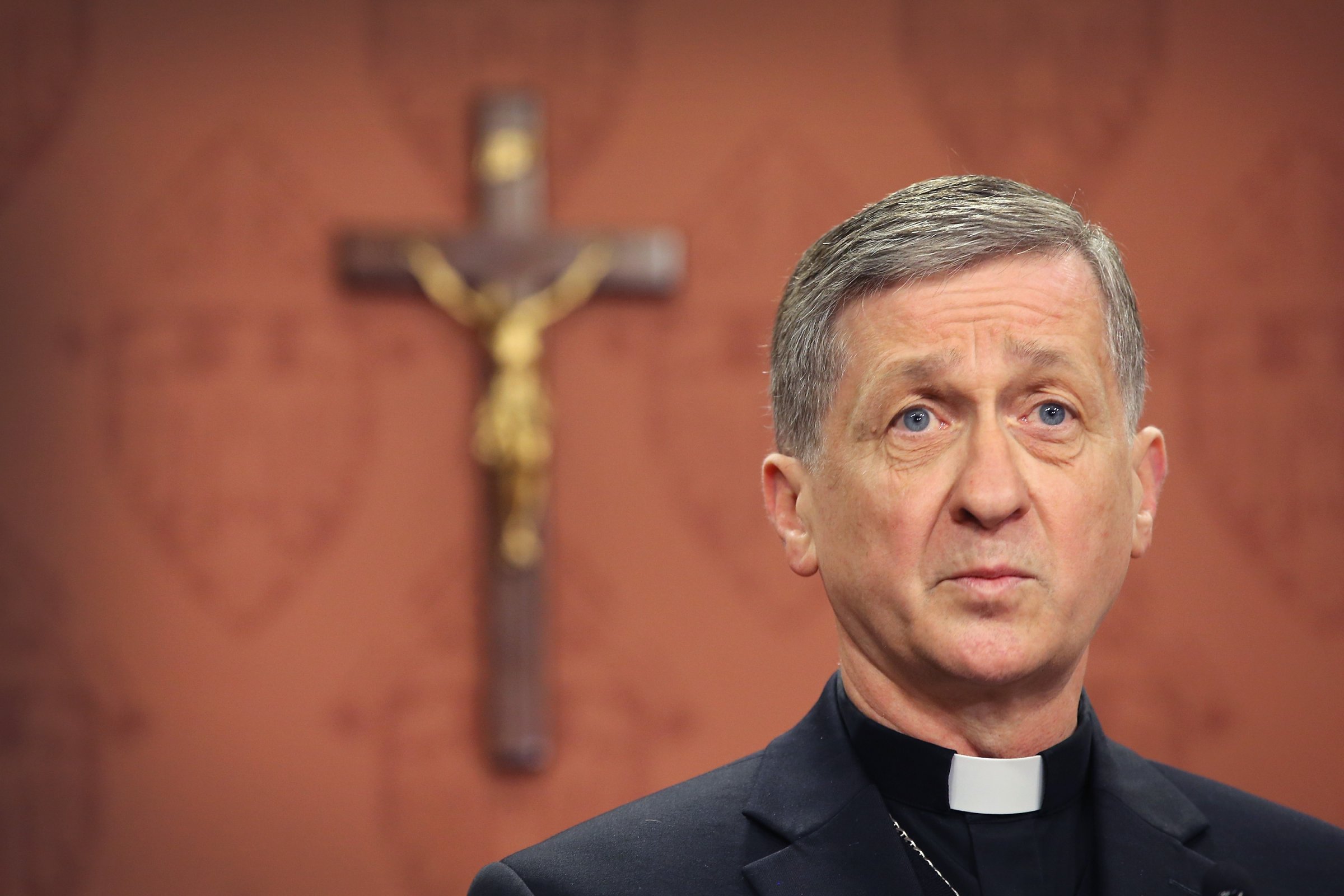
Over the weekend, Francis named Bishop Blase Cupich of Spokane, Washington as the next archbishop of Chicago. Cupich’s stunning promotion from a diocese with 90,000 Catholics to the third-largest diocese in the country with over 2.2 million Catholics was considered a long shot to most Vatican insiders.
By choosing Cupich in his first major appointment to the United States, Pope Francis has signaled that the pastoral revolution that has marked his papacy will be institutionalized long after his tenure ends as the Bishop of Rome.
So what exactly makes a “Pope Francis bishop” and how does Blase Cupich meet the criteria? Francis himself has named three things that are needed for an effective bishop: closeness to the realities of the people, a simplicity of life and a humble engagement with society.
In one of his first homilies after his election, Pope Francis said that bishops need to be so close to their people that they come home with the “smell of the sheep.” Blase Cupich apparently got the memo. Even before Jorge Mario Bergoglio was elected Pope Francis, Cupich was practicing the art of accompaniment with considerable success.
In 2012, when the Obama Administration introduced a troublesome healthcare mandate that required all Catholic employers to provide contraception for their employees, many bishops threaten to shutdown Catholic soup kitchens and social service providers rather than abide by the mandate. While Cupich too opposed the mandate, he thought the threats to close Catholic providers were too extreme. He realized that these ministries were crucial to the people in his community and thought the idea of closing them were unnecessary “scare tactics.”
Another key characteristic of a Pope Francis bishop is simplicity. Francis has derided bishops who live with the “psychology of princes.” He even fired the German “bishop of bling” Franz-Peter Tebartz-van Elst who spent over 40 million euros renovating his residence. Cupich currently lives in a room in his diocese’s seminary and owns no furniture. One of his first major decisions as the archbishop of Chicago will be whether or not he wants to sell the diocese’s luxurious mansion in Lincoln Park. Based on Cupich’s past, it wouldn’t be surprising if he did in fact spurn the archbishop’s mansion.
The final characteristic of a Francis bishop is a humble engagement with society. Francis—rejecting the “cultural warrior” paradigm of religious leadership—says: “[r]eligion has the right to express its opinion in the service of the people, but God in creation has set us free: it is not possible to interfere spiritually in the life of a person.” When the State of Washington was considering same-sex marriage at the ballot box in 2012, Cupich—while opposing the measure—affirmed the viewpoint of those who supported the initiative:
“Proponents of the redefinition of marriage are often motivated by compassion for those who have shown courage in refusing to live in the fear of being rejected for their sexual orientation. It is a compassion that is very personal, for those who have suffered and continue to suffer are close and beloved friends and family members. It is also a compassion forged in reaction to tragic national stories of violence against homosexuals, of verbal attacks that demean their human dignity, and of suicides by teens who have struggled with their sexual identity or have been bullied because of it.”
Cupich, like Francis, has instead chosen to use his political capital to lead on economic inequality. At a conference in Washington, DC last June, Cupich joined other Catholic leaders in denouncing libertarianism as antithetical to Catholic social values. “Realities are greater than ideas,” Cupich said at the conference. “Instead of approaching life from the 30-thousand-feet level of ideas, [Pope Francis] challenges policy makers and elected officials — indeed all of us — to experience the life of everyday and real people.”
Jesus says in the Gospel of John that the Holy Spirit is a “wind that blows where it will.” If that’s the case, it’s no surprise that the new spirit enlivening the Catholic Church made its first major American stop in the Windy City on its trans-Atlantic adventure from Rome.
Christopher Hale is a senior fellow at Catholics in Alliance for the Common Good and the co-founder of Millennial. He helped lead national Catholic outreach for President Barack Obama’s 2012 re-election campaign.
More Must-Reads From TIME
- What Student Photojournalists Saw at the Campus Protests
- How Far Trump Would Go
- Why Maternity Care Is Underpaid
- Saving Seconds Is Better Than Hours
- Welcome to the Golden Age of Ryan Gosling
- Scientists Are Finding Out Just How Toxic Your Stuff Is
- The 100 Most Influential People of 2024
- Want Weekly Recs on What to Watch, Read, and More? Sign Up for Worth Your Time
Contact us at letters@time.com